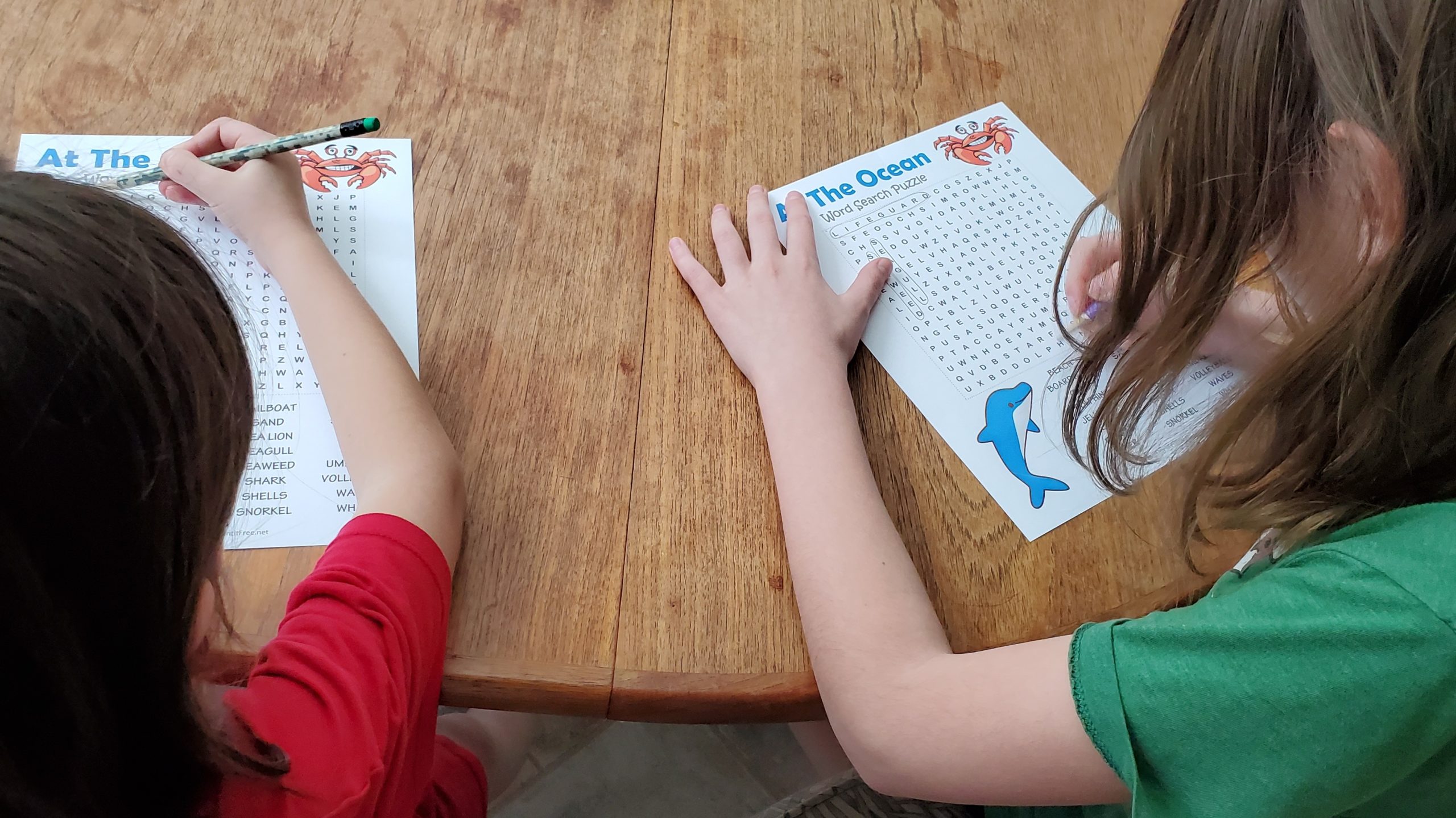
“I hate school! I hate everybody!” screams my seven-year-old, running behind the sofa to hide. Her pink fleece blanket, in dire need of a wash, covers her little body. She shakes and huddles down, desperate to sink into invisibility.
It’s 9:05 a.m. on a Tuesday. I head to my laptop and quickly create an LOL Doll word search.
“Hey, grab a pencil!” I call to her. “Something’s printing up for you!”
She runs to the printer. A crisis averted.
Selective mutism, like many anxiety-related disabilities, makes distance learning especially difficult. My daughter will talk to—and yell at—me, but not her teacher or classroom assistants. Not her peers. She stays silent online with them, refusing to even turn on her video camera. She only occasionally emails a short message to a friend she used to play with before COVID-19 hit.
All of my kids are sad and irritable, despite their kind and patient teachers. Despite me basically giving up on my own work this year to spend my days supporting them, sitting next to them, feigning enthusiasm as I physically toggle between three kids who desperately miss human connection and who express that grief through meltdowns and school refusal.
There’s only so much one mom can do, even with virtual therapy sessions for each child and an experienced parenting background in uncomfortable behaviors. My oldest child is on the autism spectrum and my middle child struggles with mood dysregulation. All three of my kids fight when distressed, become irritable when sad and sink into fearfulness when their schedules become too loose or change too quickly.
COVID-19 brought that to a whole new level. Isolated at home, the school experience fluctuating and confusing, friends all but lost to them: my kids’ behavior exploded in hard ways.
But what can we do when all the coping strategies in all the child development books don’t work to soothe our kids? Especially now that we can’t even meet up to play with friends or even go to the grocery store as a distraction?
Sometimes we find an unexpected gift in the puzzle world. An accidental self-soothing strategy discovered while frantically Googling “hamster word search” one day, in hopes of keeping one of our kids from loudly crying during a Zoom meeting.
“Can I have one, too?” my oldest asks when he sees the paper.
“Me too!” his sister demands.
All three sit down and work on the puzzle together, helping each other, laughing at the words: sunflower (backward and diagonal!), water bottle, Roborovski.
“Can we do another one?” they beg.
And so begins a new cognitive behavioral therapy practice, inspired by far too much time stuck at home and on iPads. I print up word searches for everything. My 13-year-old’s cell biology unit? Everyone find the word mitosis! My 11-year-old’s research project on Albert Einstein? Equation, relativity, science, invention. I begin to make my own, quickly typing up searches that might make a child smile when they can’t stop crying or distract them in the middle of a meltdown. I include holidays and YouTube celebrities and silly facts about our dogs. Anything that might interest them.
Panic eases into focus. When one of my kids starts to circle the hidden words, to announce “Ah ha!” and pump their fist, the others run over to see what they’re doing, pull up their own chairs and search, too. This isn’t homework, even when it’s about something they’re learning in school. The paper gets recycled afterward, sometimes just thirty seconds later. And yet the act itself centers and soothes. The puzzles giving my kids what coloring books and yoga never could – peace, even pleasure, in the midst of distress.
Now we’re heading back into the classroom but only two days a week and with the constant threat of closing again. A lack of consistency that feels like torture for children who need routine and physical proximity to their teachers and peers to stay regulated.
So we find fun where we can. More importantly, we find order and a sense of purpose in a time that otherwise feels chaotic to all people—big and little—right now.
If I had known that puzzles like this gave that sense of purpose to my children, I would have started making these when my son first began school. I would have met him in the pickup lane with a Black Hole word search in hand. I would have given my daughter an Artists Who Draw Horses word search when she woke up far too early on a Saturday morning. I would have researched every Minecraft phrase and created a Mega Gamer word search for all three kids, keeping them busy for hours on those days we were stuck at home, long before COVID, simply because we struggled that day.
If nothing else, the pandemic has given our family this gift. And I am grateful.
This story originally appeared in our April 2021 issue.







